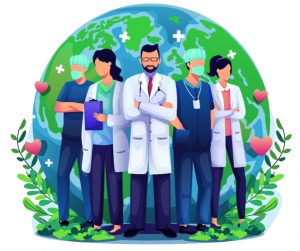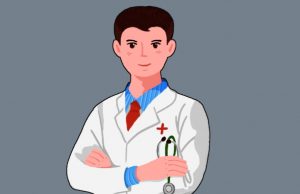Most Difficult Medical Specialties: Top 10 Hardest - Bscholarly
Most Difficult Medical Specialties: Medical science is divided into various subspecialties and super specialties. However, a select few are among the most difficult and demanding, requiring a unique skill set. Most medical students recognize that their first year in college is one of the most demanding, exciting, and gratifying times of their lives.

Most Competitive Specialties in Medicine in 2022
This is when they begin to think about the medical specialty they want to pursue as a profession. Certain specialty, however, is both more difficult and in higher demand than others. So we'll look at the most difficult medical specialties in this post.
Recommended: Countries with the Best Doctors in the world 2022
Top 10 Hardest and Most Difficult Medical Specialties in the world
1. Plastic/ Reconstructive Surgery: According to our research, plastic surgery is the hardest specialty. Plastic surgeons specialize in soft tissue such as skin, muscle, and fat rather than bones, which are the domain of orthopedic surgeons. Plastic surgeons can work on almost any visible aspect of the body, from the skin's appearance to the shape of the chest, breasts, and limbs, as well as external reproductive systems.

What are the most and least stressful physician specialties
While the purpose of cosmetic surgery is to improve the body's aesthetic appeal, certain plastic surgery operations are reconstructive, repairing damage caused by an injury, congenital flaws, or disease that affects both function and appearance. Skin grafts, implants, liposuction treatments, tissue transfers, and other techniques are commonly used by plastic surgeons to attain the desired results.
Plastic surgery, like other specialties, has subspecialties such as head and face surgery (craniofacial surgery), hand surgery, and major burns.
2. Dermatologist: Dermatologists treat a wide range of skin conditions, from acne to cancer. They may conduct routine skin exams to look for signs of melanoma or other types of skin cancer, as well as track any changes in the appearance or location of moles. On odd skin changes and disorders, they may do diagnostic procedures such as biopsies.

What is the hardest doctor to become
Dermatologists help people with skin allergies, infections, eczema, and other problems. Many dermatologists also offer cosmetic operations such as liposuction, chemical peels, and Botox injections. Dermatology attracts a big number of medical students because of the outstanding lifestyle and work-life balance that most other fields in medicine do not provide.
Dermatologists are also well compensated, frequently ranking among the top five highest-paid medical specialties.
Recommended: Countries with Where Education is Free around the world
3. Neurosurgery: Neurosurgery is one of the most difficult medical specialties. Neurosurgeons must have knowledge and skill with the brain, spine, spinal cord, and nervous system while treating patients with brain-related illnesses or injuries. Neurosurgeons might specialize in treating adults, children, and infants.

What is the most difficult type of doctor specialty?
Back surgery will be performed by neurosurgeons, tumor removal, treatment of infections and injuries to the brain and spine, stroke and degenerative disease treatment, identification and treat chronic pain, epilepsy, and seizures as well as radiological studies to interpret. Because the neurological system affects every part of the body, neurosurgery has a significant impact on a patient's life. Despite their extensive training, neurosurgeons make a substantial contribution to the medical field.
4. ENT (Otolaryngology): The surgical specialization of otolaryngology deals with illnesses of the nose, throat, and ear, as well as allied head and neck structures. Otolaryngologists, sometimes known as ENT surgeons, are doctors who specialize in this discipline.

What is the hardest doctor specialty?
Patients seek ENT treatment for disorders of the nose, ear, throat, and base of the skull, as well as surgeries for benign tumors of the neck and head and malignancies. An ENT's lifestyle is fantastic, and you can make decent money while maintaining a healthy lifestyle. This makes it an excellent specialization for those who desire to balance their profession and family life.
It's also one of the highest-paying fields. The disadvantage is that you are dealing with a very small part of the body that is extremely intricate and tough to navigate.
Recommended: Advantages and Disadvantages of Attending Boarding School
5. Orthopedic Surgery: The work of an orthopedist comprises Working on the spine, extremities, and adjacent structures to treat the musculoskeletal system. Patients who have been injured in a congenital trauma are treated by orthopedic surgeons (from birth) with conditions infections, Degenerative (progressive) disorders including cancer.

Which medical specialty is the hardest?
There are various subspecialties within the field of orthopedic surgery. Some orthopedic doctors specialize in hand and foot and ankle operations. They may also specialize in a specific condition, such as cancer (oncology) or sports injuries (sports medicine). Broken bones are set, damaged joints are replaced, wounded tendons are repaired, and tumors are surgically removed by orthopedic surgeons.
6. Radiation Oncology: Radiation oncologists are doctors that oversee the treatment of cancer patients who are undergoing radiation therapy. They discuss the adverse effects and benefits of treatment with the patient after establishing whether the patient is a candidate for radiation therapy.
Radiation oncology (radiotherapy/radiation therapy) is a medical specialty that plays an important role in the multimodal treatment of cancer. The treatment's goals may be to cure you of cancer, restrict cancer's progress, or alleviate cancer symptoms such as pain. Around 40% of all cancer patients receive radiation therapy as part of their treatment.
Recommended: Countries with the Most Nuclear Weapons 2022
7. Vascular Surgery: A vascular surgeon is a doctor who diagnoses, cures, and manages problems with your blood vessels (arteries and veins). These specialists can help patients manage chronic illnesses throughout their lifetimes, treating everything from spider and varicose veins to life-threatening aneurysms.

Most Difficult Medical Specialties
A doctor must complete several years of study to become a vascular surgeon, beginning with medical school and a residency. To become a vascular surgeon, doctors must undergo an extra five to seven years of specialized training after medical school.
This involves both classic vascular surgery treatments and minimally invasive endovascular surgery training. Surgeons can then become board-certified in vascular surgery by passing a demanding exam that assesses their knowledge of vascular disease diagnosis and treatment.
8. General Surgery: A general surgeon has a broad knowledge base that allows him or her to treat a wide range of medical diseases using specific equipment and techniques. Most general surgeons undertake surgeries on the skin, neck, breasts, belly, and arteries, referring patients with orthopedic, neurologic, and cardiac problems to specialists.
General surgeons are involved with their patients throughout the surgical process, from assessing the medical problem that necessitates surgery to preparing them for the procedure and providing postoperative care. This is a difficult specialization. However, they are paid well and have additional benefits.
Also see: Important Qualities of a good Scientist
9. Cardiology: Cardiologists are experts in heart disease. They use blood flow, blood pressure, and other health markers to measure heart function and cardiovascular health. Order diagnostic testing from cardiologists carry out procedures and prescription medication to help with poor heart health.
These doctors may work with patients who are suffering from severe heart failure or who require transplants. Repairing damaged heart valves, implanting pacemakers or defibrillators, and performing heart bypass operations are all treatments performed by invasive cardiologists.
10. Interventional Radiology: Radiology is the medical application of nuclear radiation, which includes everything from diagnostic testing to radiation therapies. Hospitals and other healthcare facilities employ radiologists. X-rays, ultrasounds, computed tomography (CT) scans, and magnetic resonance imaging (MRI) are all diagnostic imaging tests that diagnostic radiologists read and interpret.
Interventional responsibilities for radiologists include participating in image-guided therapy and giving radiation to cancer patients. Radiologists frequently specialize in imaging certain areas of the body, such as chest and heart imaging, abdomen imaging, and mammograms for breast cancer screening. Their work includes Radiation therapy and diagnostic testing.
Recommended: How to argue and think like a lawyer
Conclusion
The medical specialties listed above are among the most challenging. However, whether or not your specialty is regarded as competitive or difficult does not determine whether or not you are a good or bad doctor. However, premeds and medical students might benefit from knowing which specialty is the most difficult to enter. All specialties are competitive, and if yours is ranked lower than you'd like, it's not a reflection of your abilities.

Edeh Samuel Chukwuemeka ACMC, is a Law Student and a Certified Mediator/Conciliator in Nigeria. He is also a Developer with knowledge in HTML, CSS, JS, PHP and React Native. Samuel is bent on changing the legal profession by building Web and Mobile Apps that will make legal research a lot easier.
Comments
Post a Comment